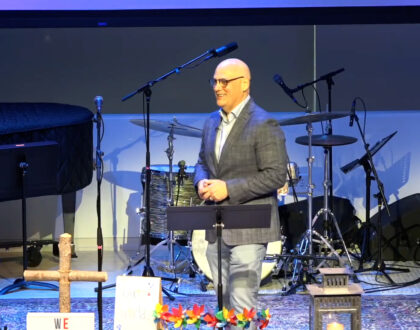Reaching the “Spiritual but Not Religious”
We now find ourselves living in an age where many consider themselves “spiritual but not religious.” There are many reasons why people feel this way: church seems boring; they’ve been hurt by organized religion; there’s a clear disconnect between Jesus and those who claim to follow him; there are alternative ways to find community; there is a lack of trust in religious institutions; people have used the church to push political agendas. It is common knowledge now that the fastest-growing religious group in our culture happens to be the “nones” – those not affiliated with any faith tradition. Many of the “nones” consider themselves spiritual and hungry for community. Also, don’t underestimate the impact of rapid secularization.
In his profound book The Future of Faith, retired theologian Harvey Cox says that Christianity is drastically changing. Interestingly enough, he identifies three basic eras in the history of Christianity.
The first era he calls the AGE OF FAITH. This was from the time of Jesus until the rule of Emperor Constantine in the fourth century. In this age, Cox says that the church was more concerned with following Jesus’ teachings than enforcing what to believe about Jesus.
The second era he calls the AGE OF BELIEF. This era began when Constantine made Christianity the official religion of the Roman Empire. It spread drastically and quickly but lost some of its prophet fervor. In this era, the church focused on orthodoxy and correct doctrine and asked the question, “What are we supposed to believe about Christ?”
We have now entered the third and final era, according to Cox, called the AGE OF THE SPIRIT. It began almost sixty years ago and in it, doctrine and creeds are not nearly as important as breaking down barriers between religions and denominations. Now, denominational loyalty is not what it used to be. Cox says that in this era, spirituality is replacing formal religion, and actually experiencing the divine is much more important than holding correct beliefs or quoting scripture. Cox says that spirituality can mean many different things. It is the rejection of pre-packaged theological propositions. It is an attempt to voice the awe and wonder of creation and life and how that can not just be limited to within the church walls. And spirituality realizes that we have a lot to learn from both inter and intra-religious dialogue, learning from other religions and learning from other Christians.
Many will ask, “what does this mean for the future of the church?” That’s an important question. It means that the church must be intentional about helping the younger generations grow in their spiritual lives and not get too bogged down with the baggage that organized religion often carries. What matters most – growing spiritually, mission, outreach, service, relationships, connection, changing lives, a living relationship with Christ, and the experience of authentic community. What doesn’t matter as much – denominations, budgets, creeds, hierarchy, positions, nonfunctioning committees, and church politics. Young believers are looking for a faith that is authentic, life-changing, and relevant to their lives. Young people are also looking to serve and give back. Faith communities that seek to grow and remain vibrant in the 21st century should take note because according to Cox, the age of the spirit is here to stay.
Recommended Posts

Leading in the Church
May 16, 2025

New Series – “Timeless Values for a Chaotic World”
May 05, 2025


